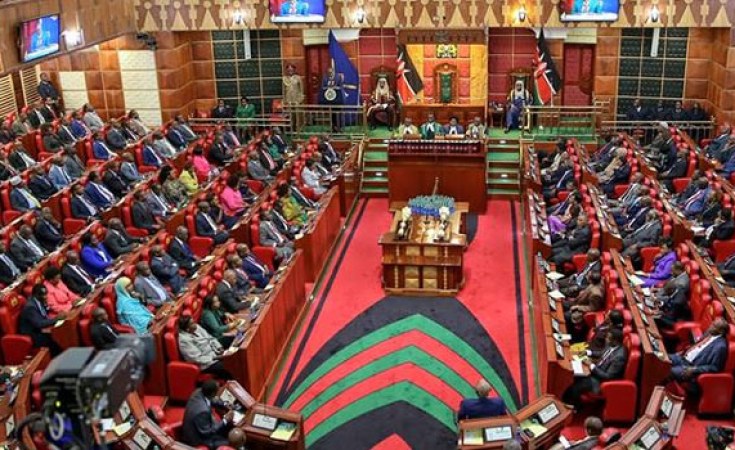Nairobi — The National Assembly has rejected the Senate's amendments to the Conflict of Interest Bill 2023, accusing Senators of undermining the country's efforts to combat corruption.
The Bill, which aimed to introduce stringent measures to prevent conflict of interest and graft in the public service, was initially passed by the National Assembly and sent to the Senate for concurrence.
However, according to the National Assembly, the Senate introduced amendments that significantly weakened the Bill's provisions.
Majority Leader Kimani Ichung'wah led the charge against the Senate's changes, asserting they would create a "fertile ground for corruption and conflict of interest to continue taking root."
He emphasized the National Assembly's role as the "bigger brother," a protective figure, and its responsibility to safeguard the interests of the Kenyan people.
A key point of contention was the Senate's decision to remove the Ethics and Anti-Corruption Commission (EACC) as the Bill's administrator and delete provisions related to conflict of interest in other anti-corruption laws.
The National Assembly argued that these changes would render the bill ineffective in addressing the country's rampant corruption.
"The Senate amendments are not just retrogressive; they are a direct threat to the war on corruption," warned Muenge Mutuse, Vice Chairperson of the National Assembly's Justice and Legal Affairs Committee.
He pointed out that the ability of public officials to transact with the offices they oversee is a major factor contributing to corruption.
Members of the National Assembly expressed frustration over the Senate's actions, highlighting the public's growing demand for accountability and transparency.
Gilgil MP Martha Wangari emphasized the need to address the persistent pilferage issue at national and county levels.
In his address to the nation on Wednesday, President William Ruto outlined a series of measures to tackle corruption and indicated his readiness to veto any flawed legislation from parliament.
"If parliament can water down the bill that we passed here to make it practically impossible to hold accountable elected leaders, then we are taking this country into the abyss. What the Senate did was a great disservice to this country. I think the Senate is suffering from an inferiority complex," Funyula MP Wilberforce Oundo remarked.
The Bill is now scheduled for mediation following the National Assembly's rejection of the Senate's version.
The two House will now have to pick representatives who will attempt to reconcile their differences.
About The Author
Davis Ayega is a versatile journalist, proficient in creative writing, interviewing, and presenting. With a keen eye for detail, he demonstrates a deep understanding of effective communication across diverse audiences.


